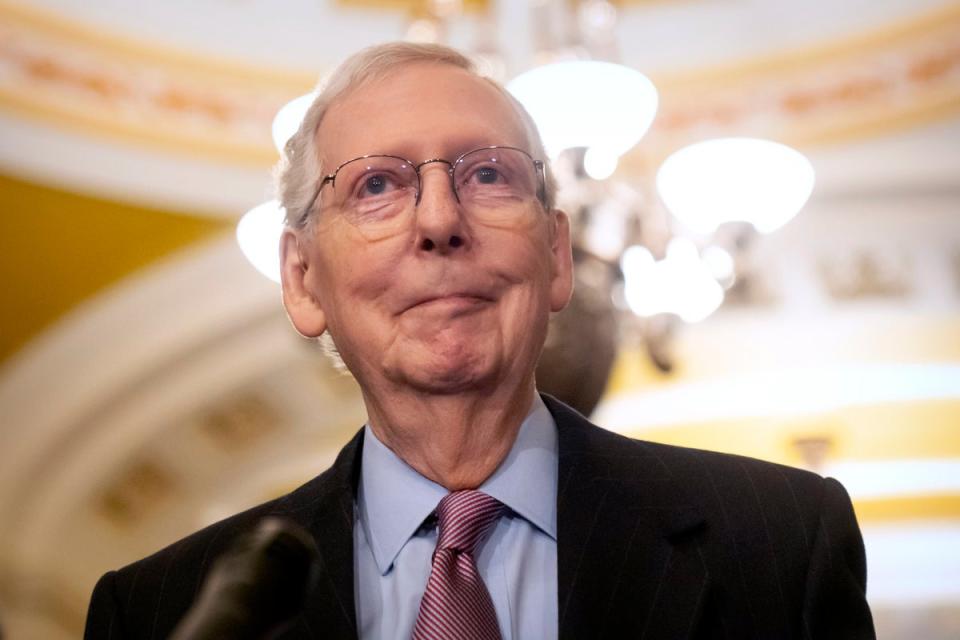Mitch McConnell doesn’t think Trump should have presidential immunity
Senate Minority Leader Mitch McConnell said he does not believe presidents should be immune from criminal prosecution while in office — a harsh blow to his former ally Donald Trump, whose lawyers argued before the Supreme Court that he had sweeping immunity.
The Kentucky Senator told “Meet the Press” on Thursday that he believed US presidents should be held accountable for any criminal actions, noting he thought that accountability has limits.
“The president clearly needs some kind of immunity or we’d be in court all the time, so we’ll see how the Supreme Court deals with it,” the 82-year-old lawmaker said.
The Republican Senator also said that he stood by his comments from 13 February 2021, shortly after he voted to acquit Mr Trump in his second impeachment trial related to the events of the January 6 Capitol riot.
Despite voting to acquit the former president, Senator McConnell warned: “President Trump is still liable for everything he did while he was in office as an ordinary citizen, unless the statute of limitations has run. [He] didn’t get away with anything yet.”
He stressed: “It’s not up to me to make that decision.”
The Supreme Court heard arguments on Thursday regarding presidential immunity. The former president’s legal team argued that he has absolute immunity from federal charges related to allegations of 2020 election interference brought by Special Counsel Jack Smith.
The justices seemed reluctant to grant Mr Trump total immunity.

Mr Trump’s lawyers expressed fears that a lack of presidential immunity would affect presidents’ ability to do their job, due to the threat of politically-motivated retribution. Trump attorney John Sauer warned that the prospect of charges, trial and imprisonment could “distort the president’s decision-making, precisely when bold and fearless action is most needed”.
Conservative justices seemed receptive to the potential political persecution argument.
Chief Justice John Roberts on Thursday said, “You know how easy it is in many cases for a prosecutor to get a grand jury to bring an indictment and reliance on the good faith of the prosecutor may not be enough in some cases.”
Attorneys for Mr Smith, on the other hand, argued that the president does not have broad immunity, arguing no one is above the law. Liberal justices seemed to agree that the president doesn’t have absolute immunity.
Justice Ketanji Brown Jackson at one point asked, “If the potential for criminal liability is taken off the table, wouldn’t there be a significant risk that future presidents would be emboldened to commit crimes with abandon while they’re in office?”


